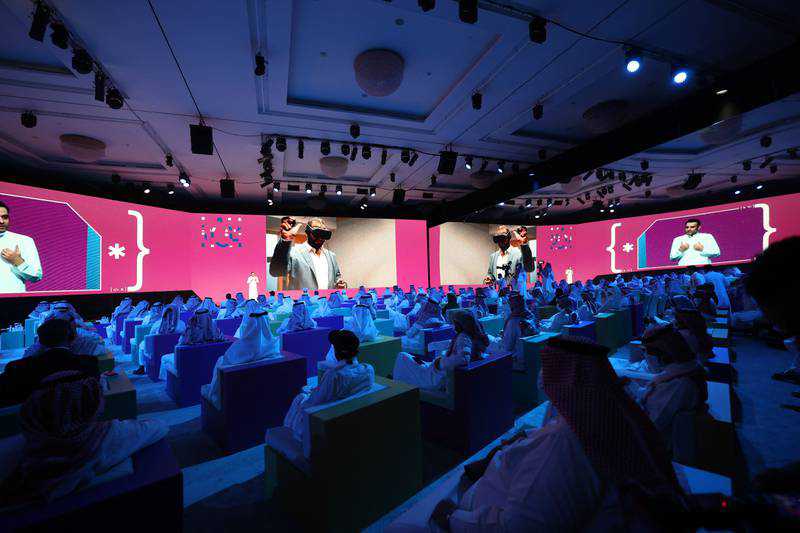Saudi Arabia unveils locally-made smart chip and new tech initiatives worth $1bn
26 August, 2021

Saudi Arabia unveiled its first locally-made smart chip and announced a slew of new high-tech initiatives worth 4 billion Saudi riyals ($1.07bn) in partnership with 10 global tech giants to improve its technological prowess.
The new initiatives announced on Wednesday in Riyadh aim to boost innovation and the digital capabilities of the kingdom and produce one programmer out of every 100 Saudi nationals by 2030, the state-run Saudi Press Agency said.
The Arab world's largest economy has tied up with leading technology giants that include Amazon, Google, Oracle, IBM, Microsoft, Cisco, Trend Micro and Avance Security, who will establish digital capability centres and innovation hubs for tech start-ups in different parts of the country.
Saudi Arabia’s Minister of Communications and Information Technology Abdullah Alswaha also unveiled the first Saudi-made smart chip that will be used in military, civil and commercial equipment and applications. The new chip is faster than existing chips in the market, Mr Alswaha said.
Digital transformation is among the central pillars of the kingdom's Vision 2030 initiative that seeks to diversify the economy, nurture local industries and reduce the reliance on oil.
The kingdom is creating an artificial intelligence-friendly ecosystem that incorporates data analytics, high-speed broadband and 5G deployment. The country’s big data and AI market is expected to reach $891.7 million by 2026, growing at an annual rate of 32.6 per cent from last year’s $164.9m, according to research consultancy Mordor Intelligence.
Saudi Arabia aims to be one of the top five countries globally in AI and it needs the creation of 25,000 specialist jobs in the field by 2030, Abdullah Al Ghamdi, the head of the Saudi Data and Artificial Intelligence Authority (SDAIA), said.
The country is also investing heavily in big projects such as the $500bn futuristic city, Neom. It is also building the Red Sea, Qidiya and Waad Al Shamal developments, which are all tech-first projects with smart city infrastructure.
During Wednesday’s event, the kingdom also unveiled the Saudi-Chinese eWTP Arabia Capital Fund that is supported by China’s eWTP Capital and Saudi Arabia’s sovereign wealth fund, the Public Investment Fund. It aims to back emerging technology companies in the country with a capital of 1.5bn riyals.
The Saudi Federation for Cyber Security, Programming and Drones, and the kingdom's Ministry of Communications and Information Technology (MCIT) launched one of the biggest technological initiatives, Tuwaiq 1000 boot camp. Started in the kingdom's 13 regions with 40 training camps, this project will cover four areas – cyber security, programming, electronic games and AI and data science.
The kingdom also announced it will host the technology conference and exhibition, Leap, next year that will contribute to the nation's goal of boosting the information and communication technology sector’s contribution to the gross domestic product by 50 per cent to 50bn riyals by 2025.
The Leap event is backed by a number of government organisations, including the MCIT.
Saudi Arabia aims to attract foreign and local investment worth over 75bn riyals in the fields of data and AI by 2030 and is looking to develop customised applications that could propel the use of Arabic language in AI algorithms and software.
AI is expected to contribute up to 12.4 per cent of the country’s GDP – equivalent to 506.5bn riyals – by 2030, according to the consultancy PwC.
In October, it signed a memorandum of understanding with the International Telecommunication Union – a UN-backed internet and telecoms agency – to promote best practices of AI solutions globally.
Saudi Arabia is competing with other regional technology centres such as the UAE, which offers long-term visas to technology entrepreneurs and professionals from around the world.
The UAE recently signed a pact with companies such as Google and Amazon to train 100,000 programmers and coders within the next five years and create 1,000 digital companies to boost its economy.
Source: www.thenationalnews.com
TAG(s):
